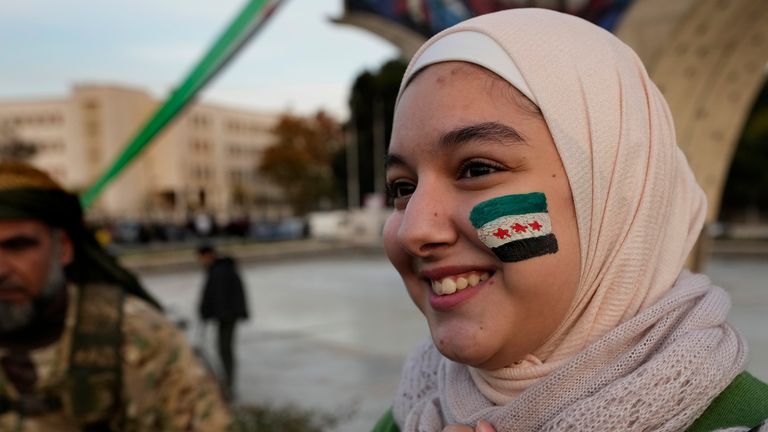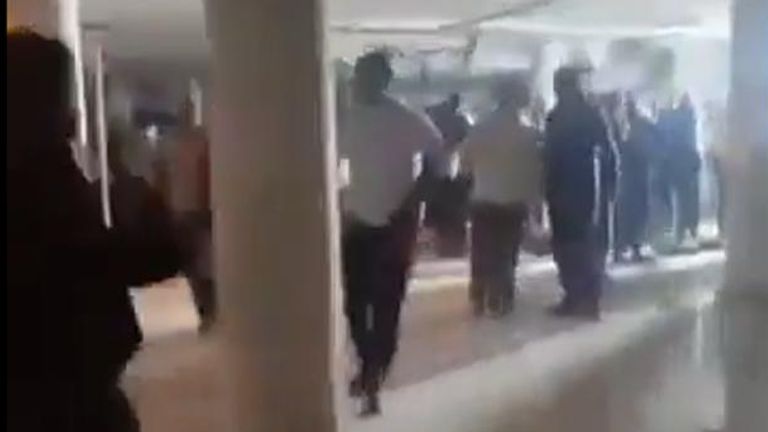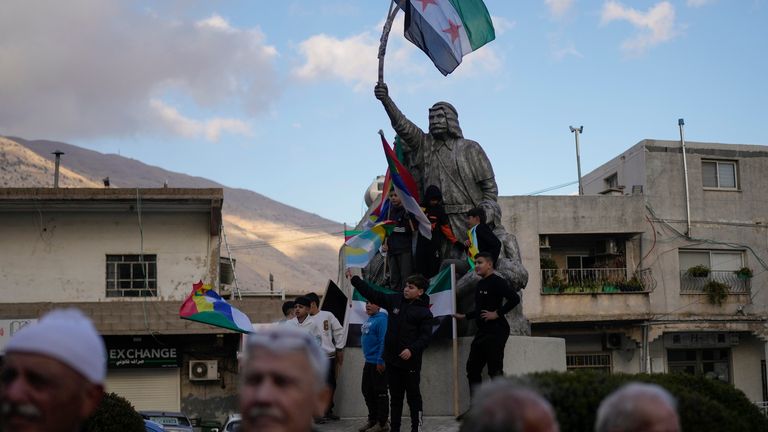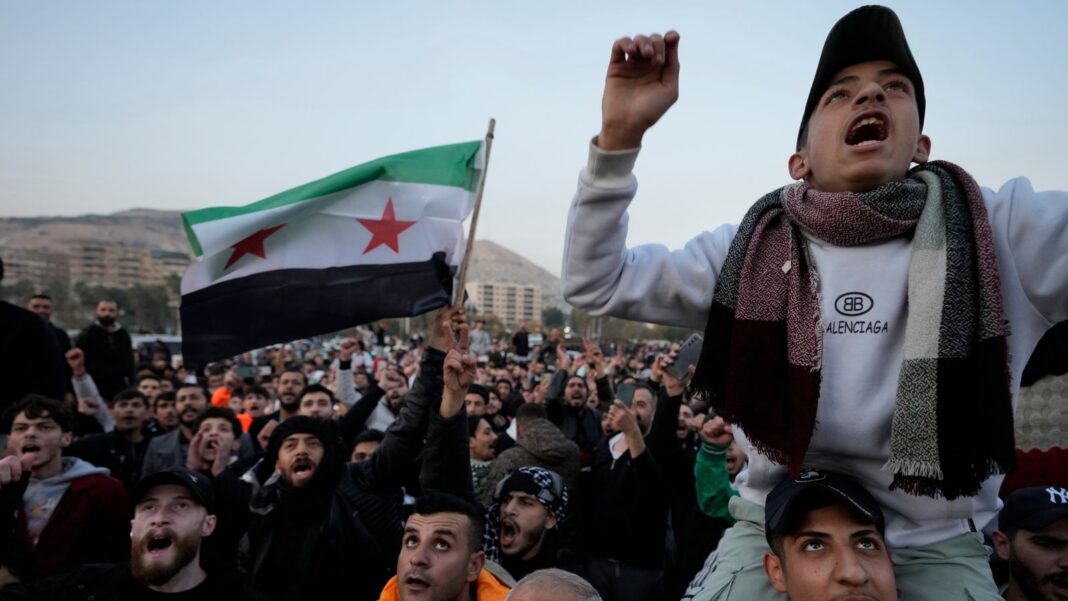The collapse of the Syrian regime could lead to a resurgence of Islamic State (IS), with concern growing about the fate of camps and detention sites holding thousands of captured fighters.
Jonathan Hall KC, the independent reviewer of terrorism legislation in the UK, has warned the evolving crisis creates the potential for a new wave of terrorism to emerge.
He told Sky News that the detention facilities in northeastern Syria “are holding some of the most dangerous Islamic State fighters”.
Syria latest – PM agrees to hand power to rebels
Celebrations in Damascus on Monday. Pic: AP

A Syrian girl with the revolutionary flag painted on her face in Damascus. Pic: AP
Mr Hall said: “These people – were they ever to be released – they would no doubt form a kernel for another iteration of the terrorist group.”
IS captured swathes of Iraq and Syria in a bloody rampage that erupted in 2014.
Imposing a reign of terror, the group tortured and murdered anyone opposing their extreme interpretation of Sunni Islam.
They used slick propaganda videos to spread their warped doctrine, attracting large numbers of foreign fighters and other followers, including from the UK, to join their ranks.
IS’s careful messaging also inspired homegrown terrorists to commit atrocities in their own countries.
The US, the UK, and other Western powers joined together with the Iraqi military as well as Syrian rebel fighters, including powerful groups of Kurdish militiamen, to combat the terrorist threat, eventually destroying IS’s self-declared caliphate in 2019.
Please use Chrome browser for a more accessible video player

0:48
Relatives search ‘human slaughterhouse’

A rally celebrating the fall of Bashar al Assad in Majdal Shams, in the Golan Heights. Pic: AP
Thousands of captured fighters, as well as tens of thousands of women and children, have since been detained in a series of sprawling camps and detention sites in the northeast of Syria, which is under the control of the Syrian Democratic Forces (SDF), a Kurdish-led alliance of militias.
They still hold the terrain and are in charge of guarding the camps with the support of hundreds of American soldiers.
However, Kurdish militias are under pressure from rival rebel groups backed by Turkey – meaning their ability to keep guard of the camps could become threatened.
There is also the possibility that any emerging transitional government in Damascus may seek to regain control of the whole of the country.
Northeastern Syria has been out of government hands for the past decade.
Its undefined status enables the UK and other Western governments to leave the problem of their own passport holders who joined IS and are detained in the camps, in limbo.
James Heappey, a former armed forces minister, said all this could now change given the events of the past fortnight.
He warned that if those camps “are not guarded properly – and there are all sorts of reasons why that might be the case – then you could see a situation within which the camps just sort of broke out and the guards were overrun and all of that concentration of IS firepower disperses around the region”.
This content is provided by Spreaker, which may be using cookies and other technologies.
To show you this content, we need your permission to use cookies.
You can use the buttons below to amend your preferences to enable Spreaker cookies or to allow those cookies just once.
You can change your settings at any time via the Privacy Options.
Unfortunately we have been unable to verify if you have consented to Spreaker cookies.
To view this content you can use the button below to allow Spreaker cookies for this session only.

“The other thing that could happen is a new democratically elected Syrian government with a mandate to govern may turn round and say: why is Syria still the place in which all of these foreign fighters are being held?
“And they, the legitimate government in Damascus engaged with their Western allies, might turn around and say: ‘Enough. Time for you to take back your foreign fighters’.”
Read more:
Assad ‘granted asylum’ in Moscow
From eye doctor to dictator
Who are the Syrian rebels?
Asked whether he was worried about a possible resurgent IS in Syria, Sir Keir Starmer focused on his hopes for a peaceful transition of power to a new government.
“When you put to me that there are all sorts of risks, I accept that there are. That’s why we have to be intensely focused on the transition.”








